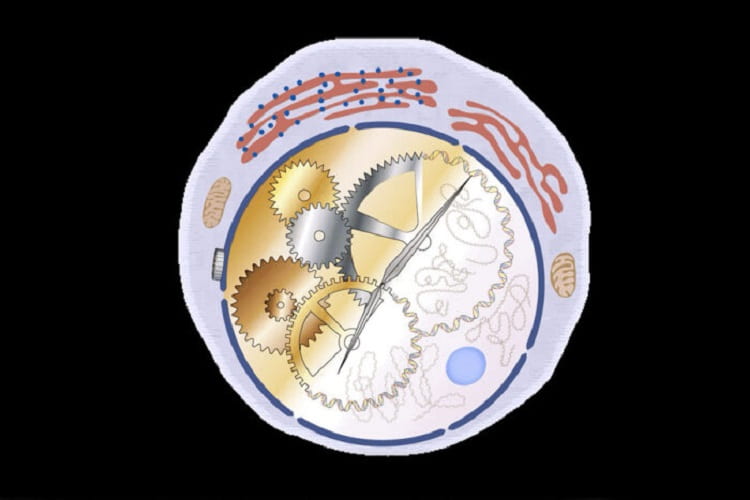As people go through their daily and nightly routines, their digestive tracts follow a routine, too: digesting food and absorbing nutrients during waking hours, and replenishing worn-out cells during sleep. Shift work and jet lag can knock sleep schedules and digestive rhythms out of whack. Such disruptions have been linked to increased risk of intestinal infections, obesity, inflammatory bowel disease and colorectal cancer, among others.
Now, researchers at Washington University School of Medicine in St. Louis have identified a type of immune cell that helps keep time in the gut. Such cells, known as type 3 innate lymphoid cells (ILC3), are responsible for keeping the intestine operating in a normal, healthy manner. The researchers found that so-called clock genes are highly active in such cells and that the cells’ production of immune molecules track with the activity of the clock genes. When the researchers eliminated a key clock gene from mice, the animals failed to produce a subset of ILC3 cells and struggled to control a bacterial infection in the gut.
The findings, published Oct. 4 in Science Immunology, help explain why disruptions to circadian rhythms are linked to gastrointestinal problems. Further, they suggest that targeting clock genes could affect immune cells and help counter the negative effects of erratic sleep schedules associated with intestinal illnesses.
“It’s become increasingly clear that the disruptions of circadian rhythms so common in modern life – shift work, jet lag, chronic sleep deprivation – have harmful effects on people’s health, but we still don’t know a lot about how exactly sleep disruptions cause these problems,” said senior author Marco Colonna, MD, the Robert Rock Belliveau MD Professor of Pathology and a professor of medicine. “What we’ve found here is that circadian rhythms directly affect the function of immune cells in the gut, which could help explain some of the health issues we see, such as inflammatory bowel disease and metabolic syndrome.”
